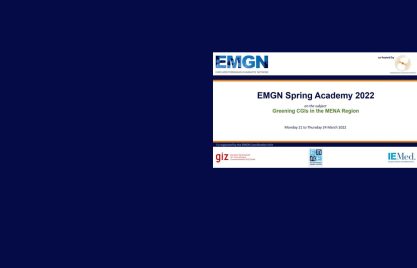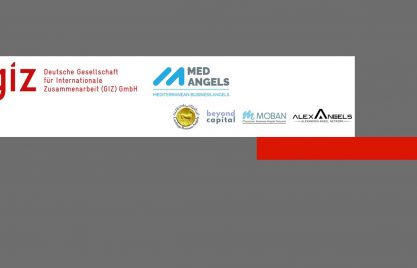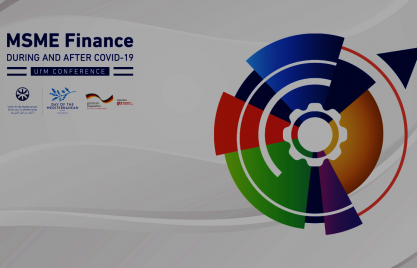“I went from having one steel-recycling machine in 2000 to owning twelve machines in 2017. I operate two workshops and have now 40 tons of scrap steel in storage to be recycled and sold to customers.”
In 1997, Dirgham Abu Khurma was 19 years old and had just graduated from a two-year technical college. He was working in a steel factory in Zarqa for 200 JD per month. One day, on his way home from work, he noticed that all the steel used in the factory was afterwards being discarded as waste. An idea in mind, he asked his manager if he could reuse the scrap metal for a project. His manager agreed and Dirgham immediately got to work. He collected scrap steel and created a machine for milling wood that he eventually sold. This was the beginning of Dirgham’s story of building a prosperous business based on used steel.
The EU and the German Government, with technical assistance implemented by GIZ, cooperate with the Government of Jordan to widen the access to finance for micro enterprises and entrepreneurs. By strengthening the policy, legal and regulatory framework for financial inclusion, the cooperation improves the long-term perspectives of people like Dirham to start and grow their businesses.
After his first success with building the wood milling machine, Dirgham was eager to test another big idea he had been dreaming of, namely to recycle scrap steel and resell the recycled product. He saved 500 JD, bought scrap steel from steel factories and set up a small workshop in his home. “At first, I was doing everything manually, using a hammer and physical labor. It would take me days to straighten out the scrap steel rods that I had bought,” says Dirgham. After a week of hard work, Dirgham realised that he needed to employ workers to achieve a sustainable growth of his business. He hired two workers, allowing his business to increase output to a capacity of a quarter ton of recycled steel per day.
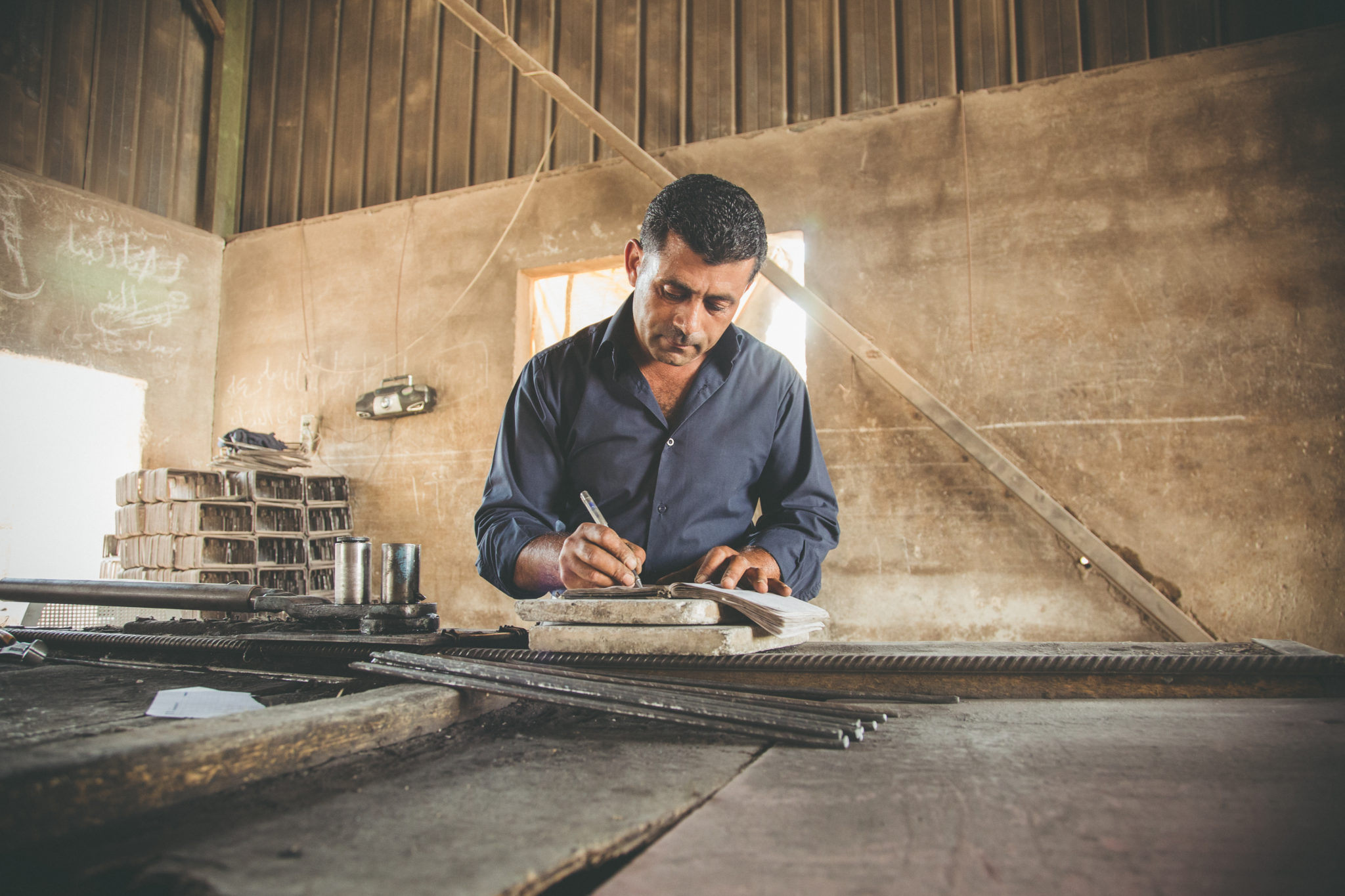
Still, Dirgham was unsatisfied with the rate of productivity and sought to speed up the production to further increase capacity. “I couldn’t find the machine I needed, so [I realized that] I had to design one myself.” Dirgham drew sketch upon sketch of the machine he knew would set his business on a path of success. “I failed so many times while designing my first machine. I tried different methods and tested the machine so many times until it finally worked!” Dirgham designed and built a machine that converted scrap steel rods to reusable rods at a low cost. “It was an immediate success! As soon as contractors found out that I was producing recycled steel rods at a lower price and with the same quality of brand new steel, the order volume started picking up.
It was at this point that Dirgham realized he needed to expand his workshop and build new machines to meet the demands of his customers and grow his business beyond its current state. He turned to a microfinance institution for help with financing and took his first loan of 1,000 JD. With this loan, he started remodeling his machine and managed to improve its design. Having a new machine enabled him to increase productivity, increase his income to 600 JD per month, and also to pay his employees and cover the running costs of his business.
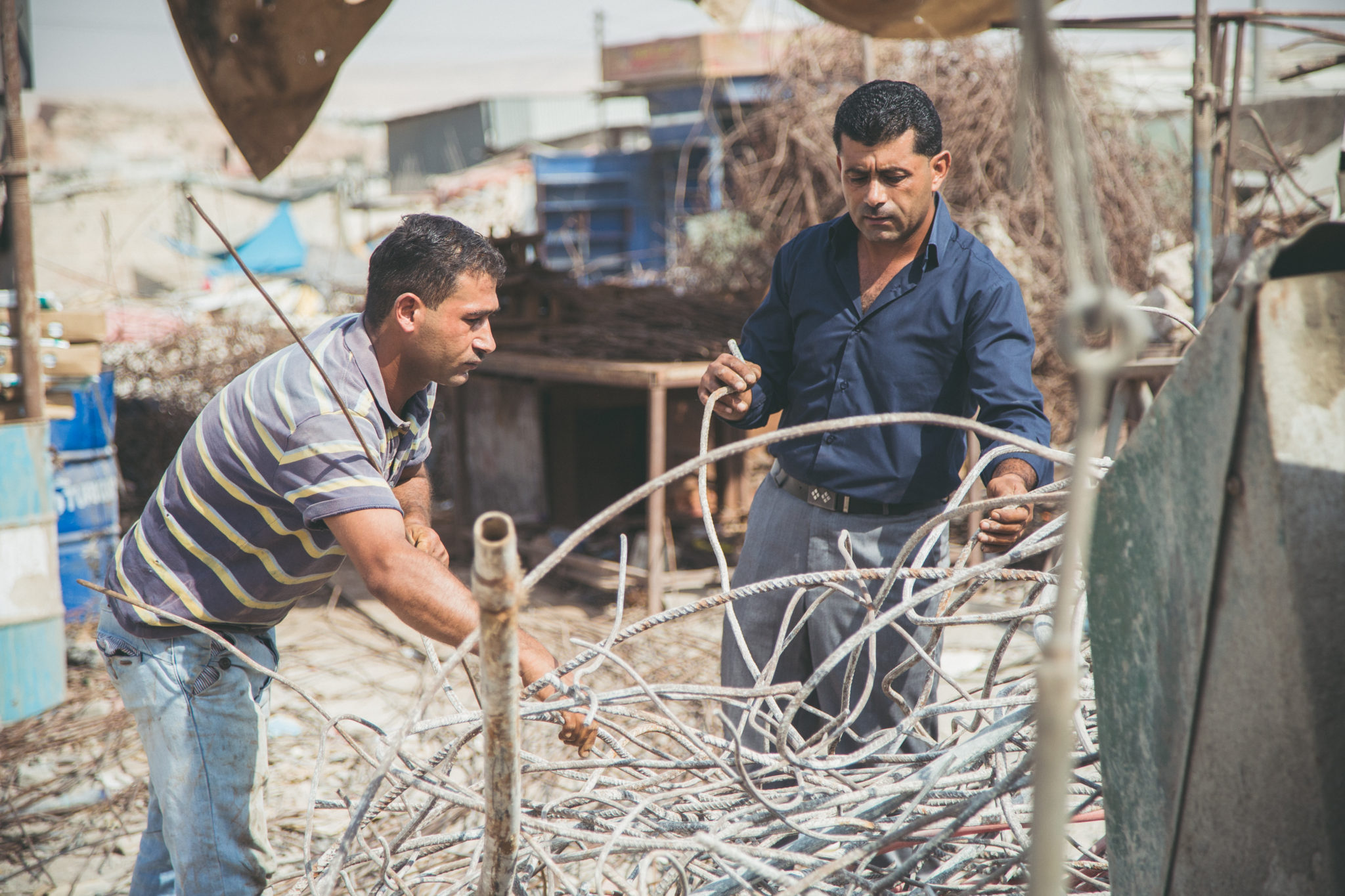
The following year, he took a loan of 1,500 JD, then 6,000 JD the year after. “After taking a 6,000 JD loan, the business was running really well. I started generating revenues of up to 5,000 JD per month and, thus, increased the number of my business’ employees to three and bought a truck for the transportation of steel rods.” With the incoming customer orders increasing, Dirgham’s life started to take a turn to the better: He built a new home for his family, he bought a new car and a(n also revenue-generating) farm, and he helped his parents and brothers with their financial needs.
“I went from having one steel-recycling machine in 2000 to owning twelve machines in 2017. I operate two workshops and have now 40 tons of scrap steel in storage to be recycled and sold to customers.” Reflecting on what got him this far, Dirgham attributes his success to his perseverance and creativity. “I saw an opportunity in recycling steel when no one else around me did. I didn’t believe that the used steel should go to waste and felt like I had to find a way to reuse it. I had never seen a steel-recycling machine; all I knew was that it was possible. Necessity is truly the mother of invention.”
Author: Natalie Al Shami
Co-interviewer: Ala’a Alhyari
Editors: Armin Satzger, Atilla Kaiser-Yuecel
This article is one in a series of feature stories about the lives and ventures of microfinance clients in Jordan. They are produced under the programme “Promoting Microfinance in the MENA Region” / “Promoting Financial Inclusion through Improved Governance and Outreach of Microfinance in Jordan”. This programme is implemented by GIZ in cooperation with the Central Bank of Jordan, the Ministry of Planning and International Cooperation, and the Development and Employment Fund as well as with funding by the European Union (EU) and by the German Federal Ministry for Economic Cooperation and Development (BMZ). The views expressed here can in no way be taken to reflect the official opinion of the EU or BMZ. For more information visit us at: microfinance-mena.org

